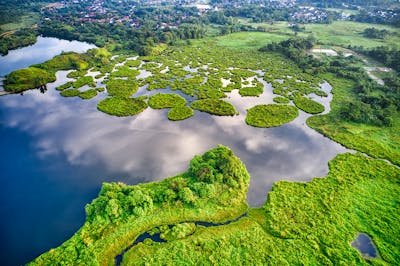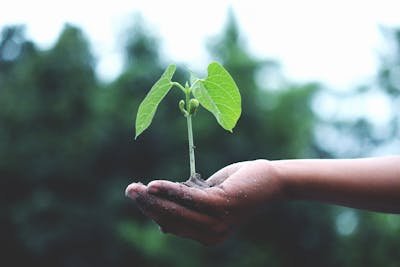Climate change is one of the most significant challenges facing the world today. It refers to long-term shifts in temperatures and weather patterns, largely due to human activities such as burning fossil fuels, deforestation, and industrial processes. These activities release greenhouse gases into the atmosphere, trapping heat and leading to global warming. The effects of climate change are being felt across the globe, with ecosystems being particularly vulnerable. As temperatures rise, ecosystems are disrupted, and the balance of nature is thrown off, impacting both wildlife and human populations.
Table: Major Effects of Climate Change on Ecosystems
| Impact | Description |
|---|---|
| Rising Temperatures | Affect species survival and habitats |
| Changing Weather Patterns | Increase in extreme events like storms and droughts |
| Habitat Destruction | Ecosystems disrupted, forcing species migration |
| Ocean Acidification | Harmful effects on marine life |
Rising Temperatures and Ecosystem Disruption
One of the most immediate effects of climate change is rising global temperatures. Warmer temperatures can make it difficult for many species to survive, especially those that are used to cooler climates. As temperatures rise, ecosystems are forced to adapt or collapse. Some species may migrate to cooler areas, while others may face extinction. For instance, polar bears and other Arctic animals are struggling to find food as ice melts. This disruption not only affects wildlife but also the entire food chain.
Changing Weather Patterns
Climate change is also causing more extreme and unpredictable weather patterns. Many regions are now experiencing more frequent storms, droughts, floods, and heatwaves. These events can damage ecosystems by altering water availability, changing plant growth, and affecting species’ reproduction cycles. Droughts, for example, can lead to water shortages, making it difficult for plants and animals to survive. These extreme weather events put additional stress on ecosystems that are already weakened by human activities.
Habitat Destruction and Species Migration
As climate change progresses, many natural habitats are being destroyed or altered. Forests, wetlands, and coral reefs are among the most affected ecosystems. Rising sea levels and deforestation are shrinking habitats, forcing many species to migrate in search of new places to live. This movement can create competition for resources in new areas, threatening the survival of both migrating and native species. Habitat loss is one of the main reasons for the decline in biodiversity around the world, which weakens ecosystems and makes them less resilient to environmental changes.
Ocean Acidification and Marine Life
Oceans play a critical role in regulating the Earth’s climate by absorbing large amounts of carbon dioxide (CO2). However, as CO2 levels increase, oceans become more acidic, a process known as ocean acidification. This change in the ocean’s chemistry is particularly harmful to marine life, especially species like corals, shellfish, and certain types of plankton. Coral reefs, which are home to about 25% of all marine species, are bleaching and dying due to the combined effects of warming waters and acidification. The loss of coral reefs has far-reaching consequences for marine ecosystems, as they are essential for protecting coastlines and supporting marine biodiversity.
Human Impact on Ecosystems
Human activities are accelerating the effects of climate change on ecosystems. Industrial pollution, deforestation, overfishing, and urbanization are all contributing to the destruction of natural habitats. These actions not only increase the amount of greenhouse gases in the atmosphere but also reduce the ability of ecosystems to absorb carbon and regulate the climate. As ecosystems become more fragile, they are less able to support the wildlife and human populations that depend on them. Climate change, coupled with human activities, is pushing ecosystems to the brink of collapse, and urgent action is needed to reverse the damage.
Conclusion: The Need for Global Action
Climate change is having a devastating impact on ecosystems around the world. Rising temperatures, changing weather patterns, habitat destruction, and ocean acidification are all contributing to the decline of biodiversity and the weakening of natural systems. Protecting ecosystems is crucial not only for the survival of wildlife but also for the well-being of humans who rely on nature for resources like food, clean water, and air. To protect global ecosystems from further damage, international cooperation and immediate action to reduce greenhouse gas emissions are necessary. Saving our planet’s ecosystems is essential for a sustainable future.



